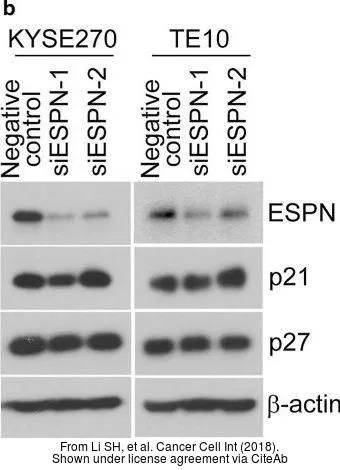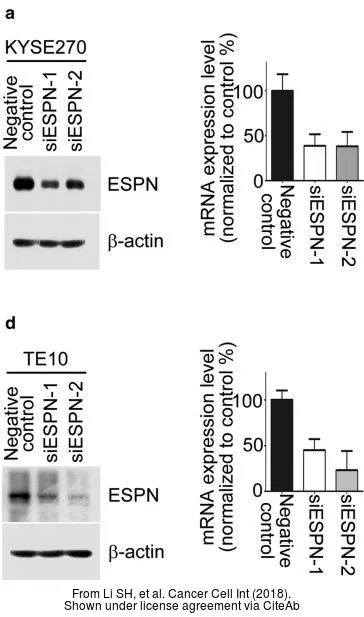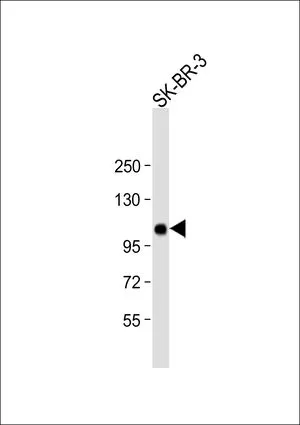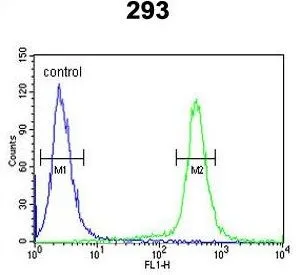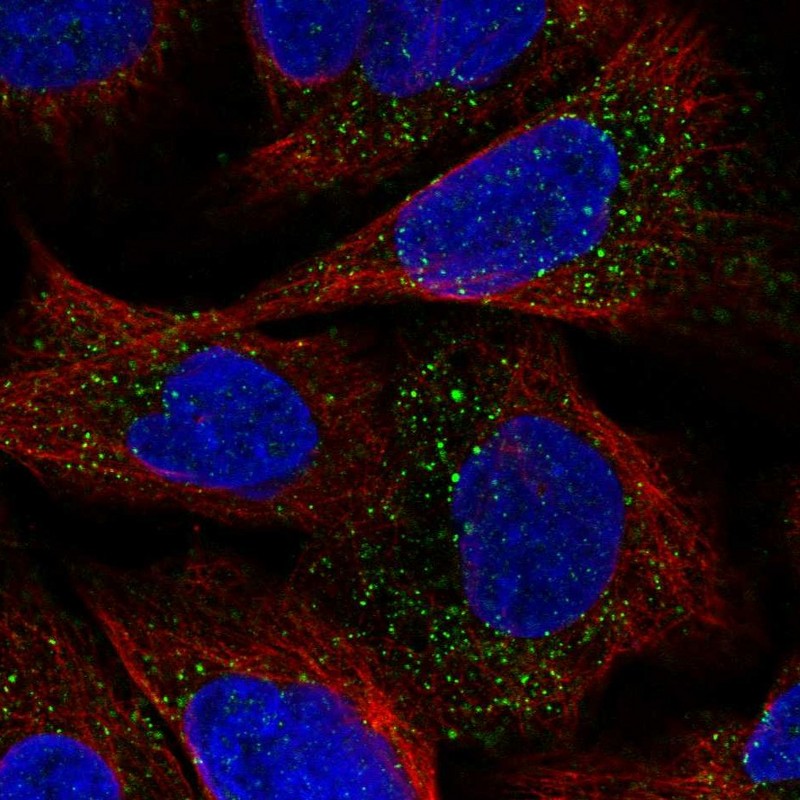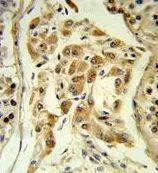
IHC-P analysis of human testis tissue using GTX81675 ESPN antibody, N-term.
ESPN antibody, N-term
GTX81675
ApplicationsFlow Cytometry, ImmunoFluorescence, Western Blot, ImmunoCytoChemistry, ImmunoHistoChemistry, ImmunoHistoChemistry Paraffin
Product group Antibodies
ReactivityHuman
TargetESPN
Overview
- SupplierGeneTex
- Product NameESPN antibody, N-term
- Delivery Days Customer9
- Application Supplier NoteWB: 1:1000. IHC-P: 1:50-1:100. FACS: 1:10-1:50. *Optimal dilutions/concentrations should be determined by the researcher.Not tested in other applications.
- ApplicationsFlow Cytometry, ImmunoFluorescence, Western Blot, ImmunoCytoChemistry, ImmunoHistoChemistry, ImmunoHistoChemistry Paraffin
- CertificationResearch Use Only
- ClonalityPolyclonal
- ConjugateUnconjugated
- Gene ID83715
- Target nameESPN
- Target descriptionespin
- Target synonymsDFNB36, LP2654, USH1M, espin, autosomal recessive deafness type 36 protein, ectoplasmic specialization protein
- HostRabbit
- IsotypeIgG
- Protein IDB1AK53
- Protein NameEspin
- Scientific DescriptionThis gene encodes a multifunctional actin-bundling protein. It plays a major role in regulating the organization, dimensions, dynamics, and signaling capacities of the actin filament-rich, microvillus-type specializations that mediate sensory transduction in various mechanosensory and chemosensory cells. Mutations in this gene are associated with autosomal recessive neurosensory deafness, and autosomal dominant sensorineural deafness without vestibular involvement. [provided by RefSeq, Nov 2009]
- ReactivityHuman
- Storage Instruction-20°C or -80°C,2°C to 8°C
- UNSPSC12352203
References
- Li SH, Lu HI, Huang WT, et al. An actin-binding protein ESPN is an independent prognosticator and regulates cell growth for esophageal squamous cell carcinoma. Cancer Cell Int. 2018,18:219. doi: 10.1186/s12935-018-0713-xRead this paper


